8. Open Your Eyes (1997)
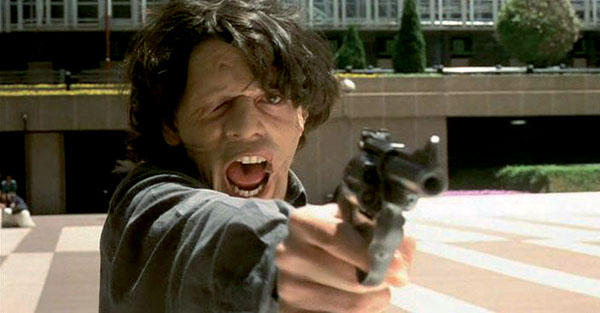
Audacious, intelligent, and admirably perplexing, Alejandro Amenábar’s Open Your Eyes is a beautifully orchestrated psychological sci-fi thriller rarity. Co-written with his regular collaborator Mateo Gil, Amenábar’s brand of reality-questioning speculative fiction, existential angst, and mental agility recalls vintage Philip K. Dick (especially his acclaimed 1969 headtripping masterpiece novel “Ubik”). But don’t let the jigsaw puzzle predication dissuade you, Open Your Eyes is an ambitious smoke and mirrors game with a lot going for it –– much more than Cameron Crowe’s tepid Vanilla Sky (2001) remake suggests.
Unable to remember a murder he committed, wealthy young César (Eduardo Noriega), facially disfigured from a failed suicidal car crash, is in psychiatric lockup, tormented by flashbacks and confusing memories of his old flame, Sofía (Penélope Cruz, stunning). Madness, obsession, and verisimilitude weigh heavy on César, and on the audience by proxy, in this solid cinematic shocker, with a twist ending so unnerving you’ll probably want to see it twice.
7. A Boy and His Dog (1975)
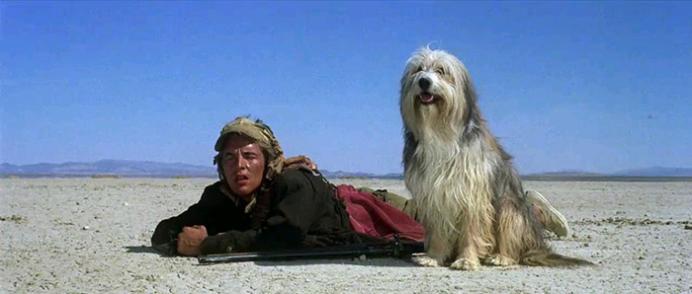
Set amidst a post-nuclear war wasteland in the year 2024, L.Q. Jones’ amoral tale of survival, this quirky freak out film inaugurated the post-apocalyptic genre with this cruel cinematic smorgasbord.
Based off the late Harlan Ellison’s award-winning novella, A Boy and His Dog stars a baby-faced Don Johnson as Vic, a shady scavenger who roams the wastes with his telepathic dog, Blood. When the duo stumble upon the suspicious and sexy Quilla June (Susanne Benton), a denizen of an underground society deep below the earth’s surface, Vic follows her down into the surreal depths.
As a doomsday fable of pitch-black proportions, A Boy and His Dog is quite singular, and sinister, and wonderfully hard to shake.
6. Total Recall (1990)
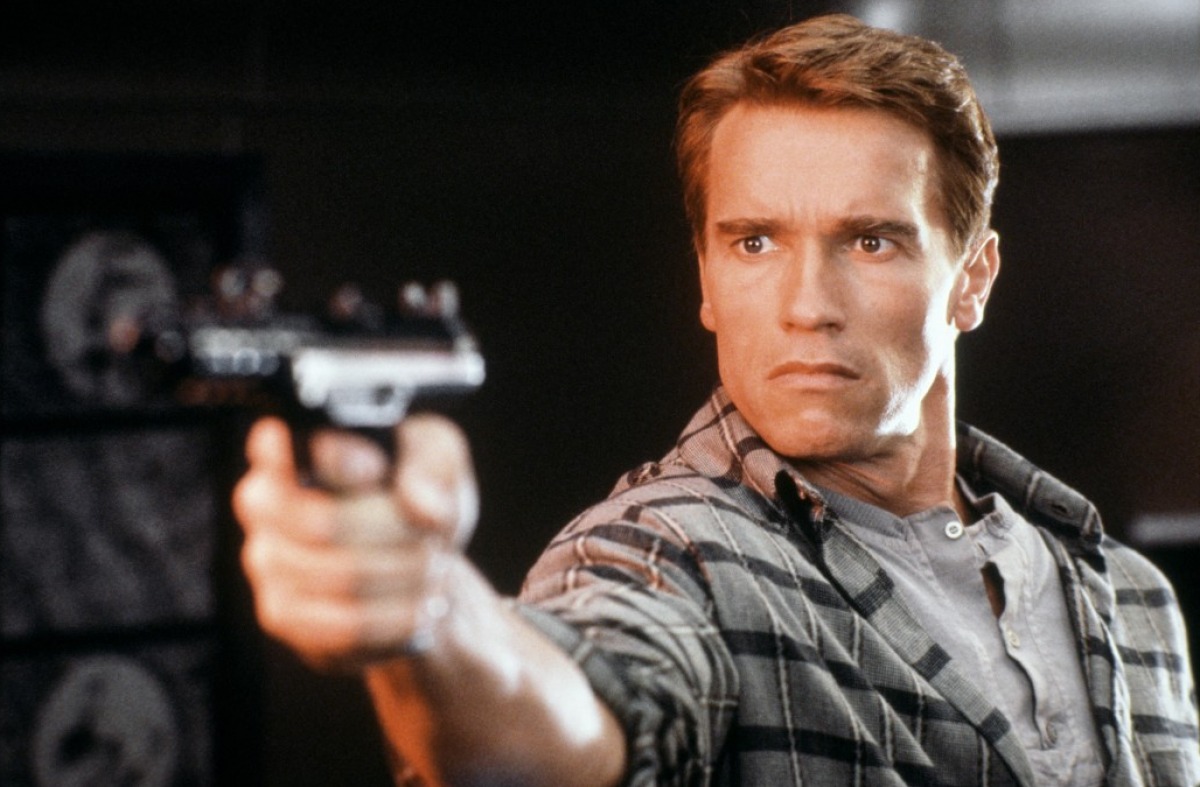
Paul Verhoeven’s Total Recall is the first and finest loose adaptation of sci-fi legend Philip K. Dick’s We Can Remember It for You Wholesale (feel free to utterly ignore Len Wiseman’s 2012 waste of space), and the resulting film is awesome. And by “awesome” I mean overrun with profanity, excessive violence, memorable one-liners (“Benny, screw you!”), gruesome sight gags (“See you at the party, Richter!”), and a shit ton of razor-sharp satire.
Arnold Schwarzenegger, at the height of his popularity, is ultra-masculine hero Douglas Quaid, a plebeian construction worker on Earth in the year 2048, who has strange memories of Mars. Via an ill-advised session at Rekall — a conglomerate the happily provides memory implants for their customers — Quaid soon discovers previously suppressed memories suggesting a massive conspiracy that will lead to Mars.
Verhoeven’s visuals are astounding as are his alien landscapes and futuristic imaginings. The post-punk production design and showy special effects add to the bombastic sensory assault, as in the three-breasted mutant Martian prostitute who, pardon the terrible pun, is milked for all she’s worth (which is a lot!).
Total Recall is crass, hyper, hilarious, and full of pep. If liking this OTT sci-fi orgy as much as I do is wrong, who needs to be right? “Get your ass to Mars!”
5. Children of Men (2006)
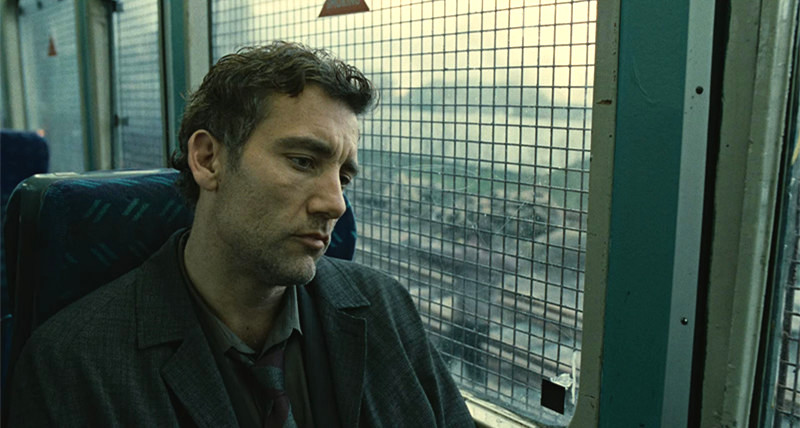
Alfonso Cuarón has directed many wonderful films (2013’s Gravity would also make a fine addition to this list), and his 2006 dystopian drama Children of Men is the stand out amongst them, and a prime example of a sci-fi thriller done right.
Sharply adapted from P.D. James’ 1992 novel, Children of Men is a bleak, brutal, technically dazzling marvel of misgiving, mental stress, and intense action. Clive Owen leads a champion cast (Clare-Hope Ashitey, Michael Caine, Chiwetel Ejiofor, and Julianne Moore amongst them) through the final, fragile days of dying out humanity in the year 2027. With the human race rendered infertile and all of society crumbling around them, Owen’s derisive civil servant Theo Faron must escort a pregnant refugee (Ashitey) through the chaotic and crumbling remnants of the United Kingdom, or what’s left of it.
The human drama is profound and Emmanuel Lubezki’s award-winning cinematography inundates and overwhelms the viewer constantly. Many innovative and ingeniously clever choreographed single-shot sequences catapults the film into the stratosphere, making it an exemplar of visual sci-fi centric storytelling and marvelous, forward-looking cinema. Sensational and head-spinning stuff.
4. Solaris (1972)
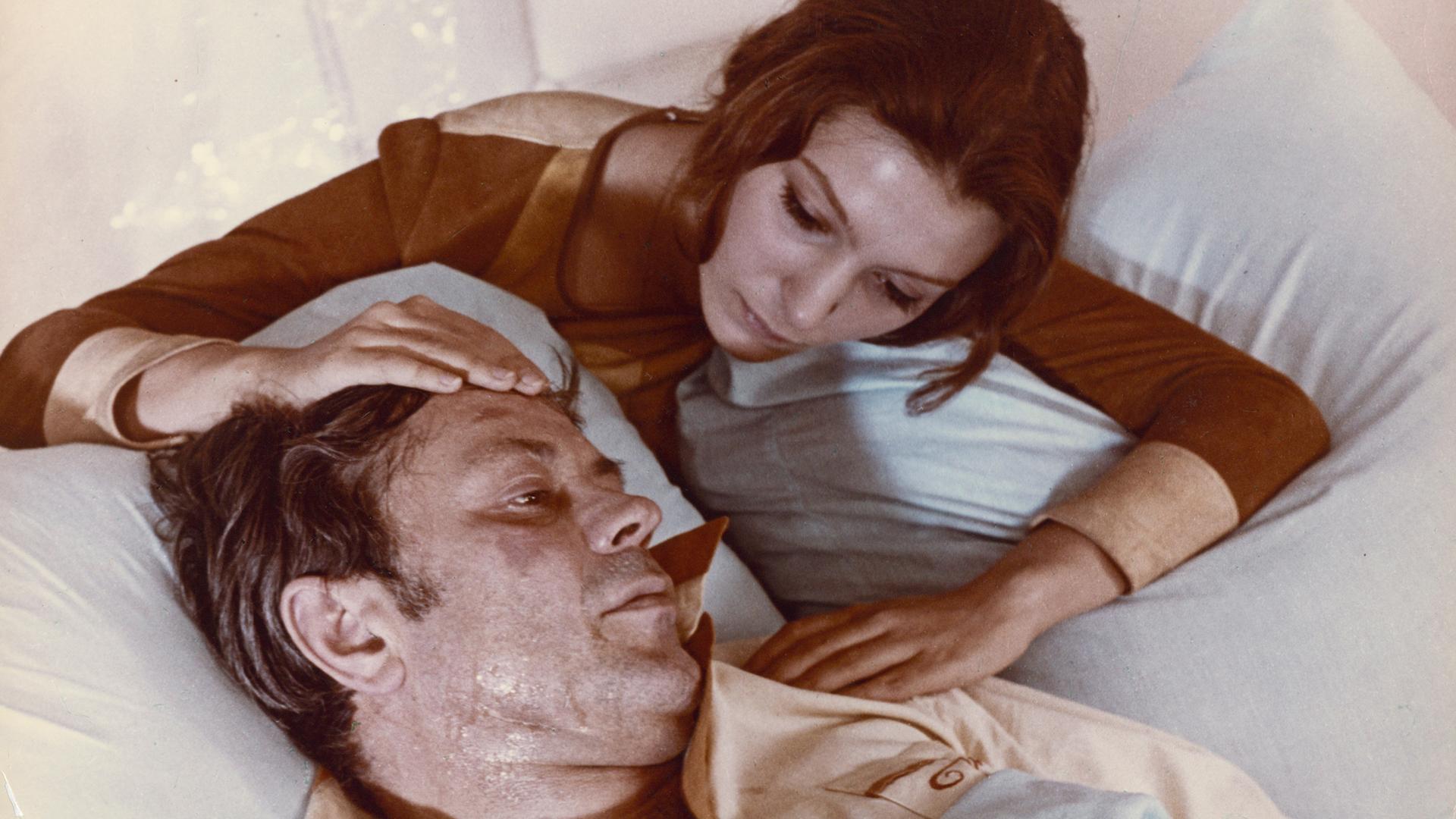
Without the benefit of a hefty and helpful budget and produced during Soviet pogroms against free expression, Andrei Tarkovsky’s Solaris remains a landmark film that ruminates on loss, longing, memory and what it means to be alive. Adapted from the great 1961 novel by sci-fi legend Stanislaw Lem, Solaris concerns itself not with space opera, explosions, and special effects but with philosophical speculation and poetic perceptions, and the results are equal parts idiosyncratic, disturbing, and deeply strange, and never less than compelling.
Psychologist Kris Kelvin (Donatas Banionis) agrees to examine the crew of a space station orbiting the eponymous planet Solaris, a mysterious orb that seems to have its own pull on the psyches of those in her midst. As Kris, who at one point suggest that “whenever we show pity, we empty our souls,” realizes that Solaris can recreate the memories of visitors, including that of his long-departed wife Hari (Natalya Bondarchuk), Tarkovsky strikingly toys with color symbolism and almost gauche religious imagery.
A heady mixture of arthouse, mental anguish, spiritual landscapes, and overwhelming melancholy, Solaris is a deeply felt narrative, one that unhurriedly unfolds on the grandest of scales, it’s also one of the most absorbing instances of speculative cinema ever wed to celluloid. A masterpiece by any measure.
3. Invasion of the Body Snatchers (1978)
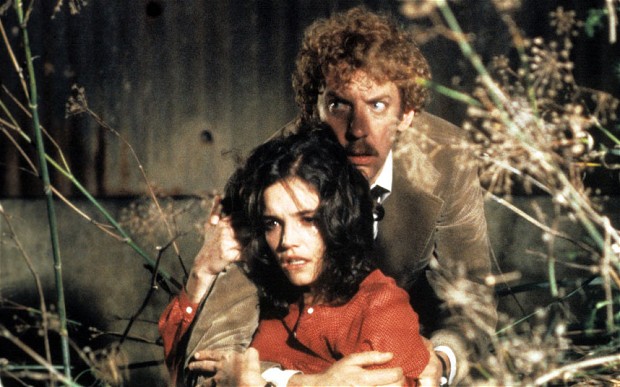
Philip Kaufman’s 1978 paranoiac sci-fi thriller works on primal fear and excels at making the familiar terrifying. Not the first time Jack Finney’s 1955 novel was adapted –– Don Siegel did it in 1956, Abel Ferrara in 1993, and most recently Oliver Hirschbiegel in 2007 –– and the other interpretations offer decent chills, but something about the Kaufman version absolutely mortifies.
Partially due to W. D. Richter’s marvel of a screenplay that ratchets up the tension while providing a multi-protagonist cast of the highest order to realistically cope with a terrifying outer space invasion on a personal level.
The brilliant cast, led by Donald Sutherland also includes Brooke Adams, Robert Duvall, Jeff Goldblum, Leonard Nimoy, and Don Siegel. Not since Vertigo has San Francisco, as lensed by Michael Chapman, looked so haunting, dream-like, and touched with hidden menace.
Invasion of the Body Snatchers also boasts one of the most scream-inducing surprise endings ever to keep you up at night. A hybrid of horror and SF, it’s an unforgettable classic that will rob you of several night’s sleep.
2. The Thing (1982)
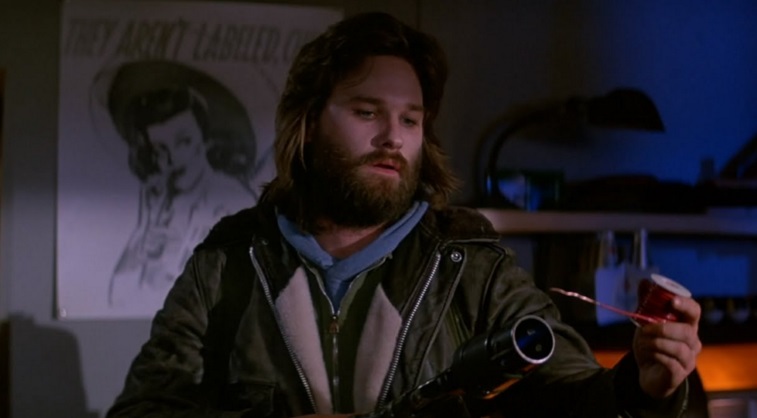
John Carpenter’s 1982 masterpiece –– shockingly and wrongly maligned on its initial release ––The Thing (a kinda sorta but not really remake of 1951’s The Thing from Another Planet) is gratuitous in its gore and relentless in its mounting mental fatigue. Akin to David Cronenberg in its body invasion themes, Carpenter’s use of body horror here is equal parts grotesque and eerily beautiful for its surreal sweep.
An unthawed alien stalks an Antarctic research station and could be anyone due to its shape-shifting capabilities and insatiable bloodlust. This pageant in paranoia is led by Kurt Russell’s PJ MacReady, who tears through tropes of whodunnit, horror with inky black comedy.
The Thing is marvellously and hideously impressive, Carpenter expertly prolongs his literally gut-twistingly intense film –– his personal favorite –– influential, often imitated, and all around awesome. Cinematic horror is seldom this sensational. Be sure to watch it with the lights on.
1. Blade Runner (1982)
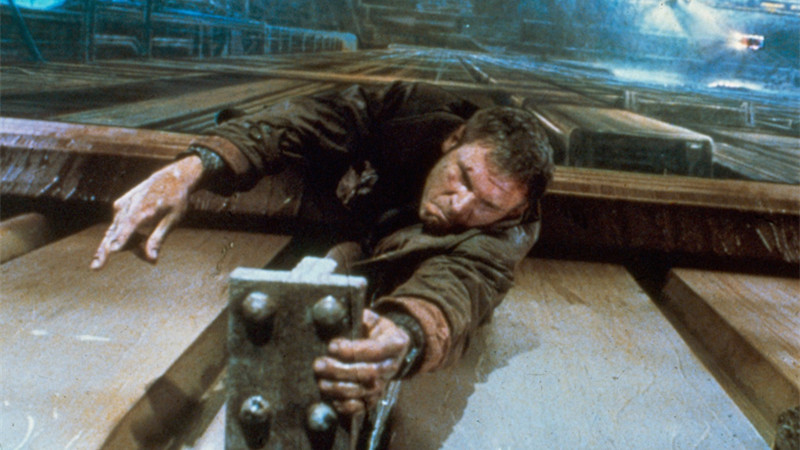
Ridley Scott’s gritty gray postmodern adaptation of Philip K. Dick’s classic 1968 sci-fi novel “Do Androids Dream of Electric Sheep?” anticipated the advent of cyberpunk and reworks familiar film noir trappings to make one of the most iconic and inspired films of 1980s. Set in a smog-shrouded 2019 Los Angeles, Earth has an overpopulation problem, so off world colonies are all the rage.
Sweetening the pot of relocating to foreign planets is the Tyrell Corporation who have designed “replicants” –– essentially designer humanoids –– to work as slave labor and with a limited lifespan. When these replicants go AWOL, a fate which befalls many, it’s the job of the “blade runner” to hunt them down.
Enter laconic former blade runner and disenfranchised ex-police investigator Rick Deckard (Harrison Ford), summoned back into action from the bureau to “decommission” four rogue replicants led by one Roy Batty (Rutger Hauer). Ostensibly the villain of the film, Batty morphs into a mythic tragedian, a modern Prometheus; Deckard, meanwhile, moves from two-fisted hunter to homomorphic malefactor.
Blade Runner busies itself with questions about what it means to be human, dissecting ideas of A.I., consciousness, reality, and other requisite Dickian themes while paying perceptive adulation to wide-ranging influences such as Fritz Lang’s Metropolis (1926), James Whale’s Bride of Frankenstein (1935), Stanley Kubrick’s 2001 (1968), the illustrative grandeur of French comic book legend Jean Giraud (aka Mœbius), the compositions of Edward Hopper, the aesthetics of film noir, and detective fiction à la Raymond Chandler, not to mention being overripe with religious allegory, Blade Runner is a densely packed table d’hôte.
Scott’s pastiche framework is stunning, justifying the cult-like adoration that has embraced Blade Runner over the years –– initially, while not a bomb, Blade Runner didn’t meet box office expectations –– gradually evolving into the neo-noir showpiece we know and love. We wanted a future with flying cars, but did we want the dystopian discomfort? The answer is a reluctant but resounding yes. Miss this movie at your peril.
Author Bio: Shane Scott-Travis is a film critic, screenwriter, comic book author/illustrator and cineaste. Currently residing in Vancouver, Canada, Shane can often be found at the cinema, the dog park, or off in a corner someplace, paraphrasing Groucho Marx. Follow Shane on Twitter @ShaneScottravis.